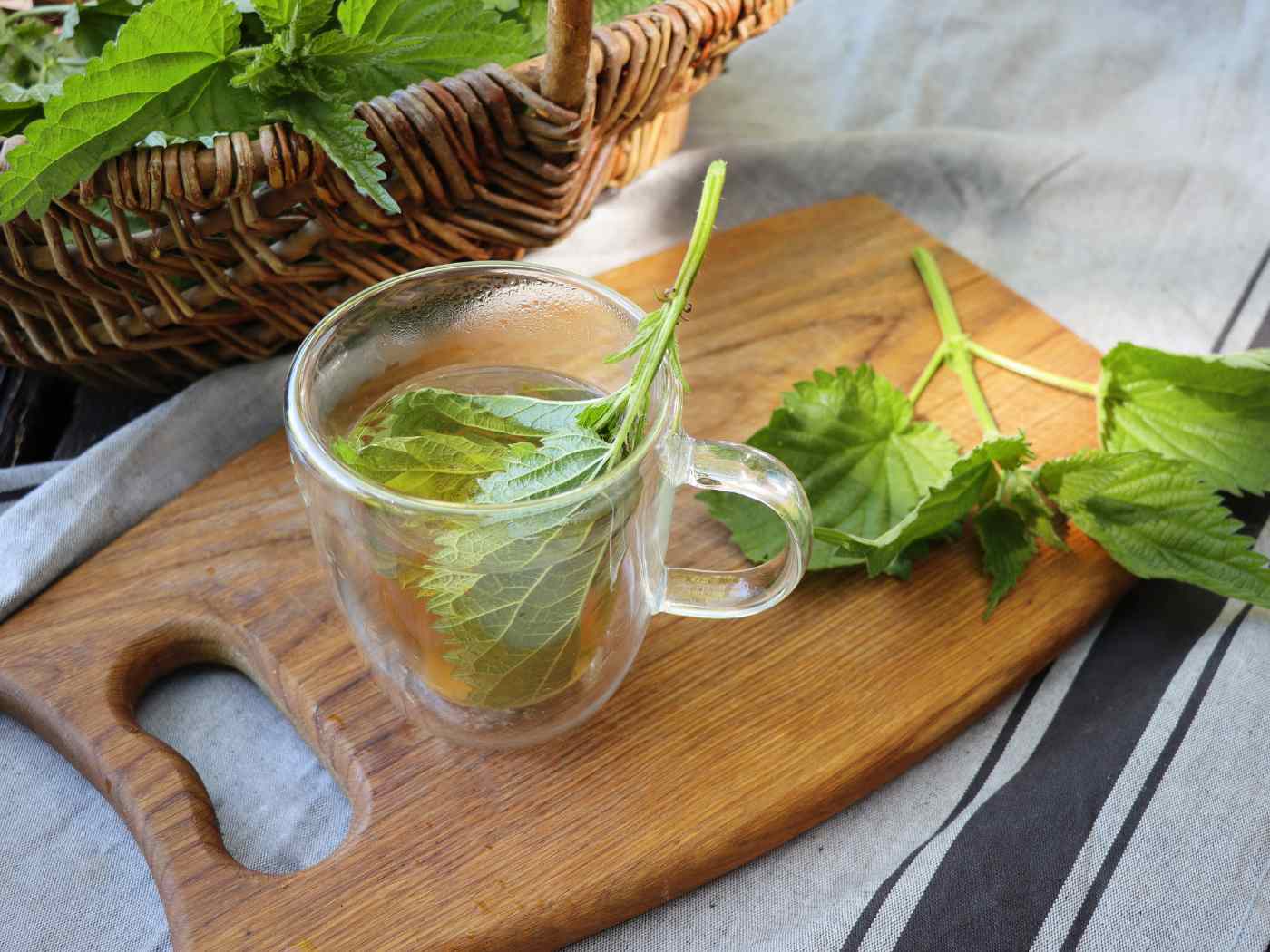Anyone who has experienced stress in their lives, which is all of us, knows that stress can have a profoundly negative effect on our health and happiness.
What we might not realize is that our skin is also vulnerable to the devastating effects stress brings. Just like our bodies shift into overdrive during tough times, our skin's ability to function normally falters as well.
That’s where adaptogens come in. Adaptogens are a group of herbs that do just what their name suggests, which is to help you adapt in times of increased stress. The term adaptogen applies to a wide variety of plants, some of which you might already use.
Spices like ginseng, turmeric, and ginger are considered adaptogens, as well as many types of mushrooms.
You might have only heard of adaptogens recently, but these powerful healing herbs have been used in traditional Chinese medicine and Ayurvedic medicine for a few thousand years.
Their use in skincare and other beauty products has expanded lately as newer studies have revealed their exceptional skin-health benefits.
In this blog post, you will learn how stress affects your skin, what exactly adaptogens are, and how adaptogens in skincare can help restore harmony and balance when things go awry.
How does stress affect our bodies?

In our busy and often-hectic modern lives, we are certainly no strangers to stress. We might not have to worry about being chased down by hungry wild animals like our early ancestors, but our daily lives present us with plenty of challenges.
These challenges can easily accumulate, holding our bodies in a stressed-out state for long stretches of time. This is when inflammation becomes chronic and poses a real problem for our health.
Psychological stress works from the inside, affecting our body’s hormone production. When we experience emotional strain, three glands collectively known as the hypothalamic-pituitary-adrenal (HPA) axis are called into action.
During times when our emotions are on edge, the HPA axis releases hormones like cortisol and adrenaline into our bloodstream. These “fight or flight” chemicals are helpful at first, and even necessary, to allow us to react to imminent danger.
If left unchecked, that's when they cause inflammation to run rampant throughout our bodies.
How does stress affect our skin?
Stress affects the condition of our skin in multiple ways. Ongoing mental stress, high cortisol levels, and increased inflammation affect all the organs and systems in our bodies, including our skin.
Our frazzled state can cause us to experience skin irritations like rashes and itchiness, and can aggravate existing inflammatory skin conditions like acne, psoriasis, and eczema.
Furthermore, high cortisol levels signal the sebaceous glands in our skin to produce more oil. This sets us up for more frequent acne breakouts.
Another way stress affects our skin is through the outside elements. Our skin is constantly bombarded by environmental aggressors like the sun’s rays, changing temperatures, wind, and air pollution.
These harmful elements stimulate skin cells to produce their own stress hormones, also leading to increased inflammation.
External stressors can also disrupt the skin’s protective barrier, which acts as a shield against bacteria, toxins, and allergens. Damage to this barrier leads to moisture loss and dry, irritated skin.
As a result, our skin starts to show signs of premature aging, like fine lines and wrinkles, and takes on a generally dull appearance.
What are adaptogens and what do they do?

Adaptogens are a unique class of herbs that influence the body's stress response.
Typically, their active compounds are found in the root of the plant but they're also in other parts of the plant, like the leaves.
Interestingly, many adaptogenic plants grow in extreme conditions and are able to thrive in stressful environments quite well. This might help explain why they’re so good at what they do!
You’ve probably seen adaptogens as oral supplements, teas, and tinctures in health food stores and herbal pharmacies as they’ve become wildly popular of late. And for good reason!
Their rise to modern-day fame is primarily due to their ability to increase the body’s overall resistance to stress and bring the body back to a state of balance and well-being.
By normalizing the function of the HPA axis and restoring homeostasis, adaptogens help us control inflammation and avoid the damage it leaves in its wake.
Studies also show that adaptogens have the power to protect nerve cells from damage, reduce fatigue, decrease anxiety and depression, enhance brain function, and increase energy and stamina.
It’s no wonder these extraordinary herbs are capturing our attention!
How do adaptogens benefit your skin?

With their amazing ability to mediate our whole body’s stress response, taking them as oral supplements will help keep your skin looking healthy and beautiful.
By calming psychological stress and lowering cortisol levels, inflammation is kept in check and our skin continues to function normally.
But these powerful herbs also do wonders when they’re applied topically as an ingredient in adaptogenic skincare.
Adaptogens in skincare have the unique ability to make our skin more resilient to internal and external stressors and repair the cellular damage caused by stress.
High concentrations of antioxidants and other phytochemicals strengthen and invigorate your skin, empowering it to fend off environmental aggressors with greater ease.
Here are some of the benefits of adaptogens for skin when they're applied topically:
Reduce signs of premature aging
Soothe irritation
Support collagen production
Reduce inflammation
Reduce acne breakouts
Repair skin barrier
Boost skin cell regeneration
Improve skin tone
Reduce dark spots and hyperpigmentation
How do we use adaptogens in our skincare?

Harmony Adaptogenic Elixir
We’ve harnessed these radical stress-fighting effects in our Harmony Adaptogenic Elixir.
With a blend of extracts from four adaptogens combined with some of our favorite nutrient-rich oils like jojoba and marula, this elixir delivers an abundance of active botanicals that provide targeted benefits for every skin type.
We use four of the most potent adaptogens in our oil-based formula that will give you a healthy radiant glow: Ashwagandha Root, Rhodiola Root, Licorice Root, and Marshmallow Root. They work synergistically to cover a variety of skin issues.
Read more about each one of these potent adaptogenic ingredients below.
Ashwagandha Root

Also known as Indian ginseng or winter cherry, Ashwagandha is a favorite herb in Chinese and Ayurvedic medicine due to its incredible healing powers.
The root of the plant contains phytochemicals called "withanolides," which studies show are the main source of its health benefits.
These active compounds make this herb an excellent anti-inflammatory, antimicrobial, and antioxidant for the skin.
Used in skincare, ashwagandha purifies pores, heals free radical damage, calms redness and irritation, reduces dark spots, and helps retain moisture.
Rhodiola Root

This mighty adaptogen is also called the “golden root.”
It’s loaded with plant polyphenols and is a highly effective antioxidant, anti-inflammatory and modulator for the immune system.
Studies have shown that Rhodiola in skincare helps repair the skin’s protective barrier and reduce transepidermal water loss, leaving you with softer, more hydrated skin.
It also promotes collagen synthesis, increases cell turnover, and speeds up wound healing.
This herb is great for correcting hyperpigmentation too.
Licorice Root

Licorice root, or Glycyrrhiza glabra, is a superhero for sensitive skin because it contains an anti-irritant chemical called licochalcone A.
Licorice also contains chemicals that inhibit the pigment melanin, which helps to reduce acne scars and dark spots and brightens your skin's appearance.
It also has potent anti-inflammatory and antioxidant properties, making it excellent in skincare for soothing skin conditions and repairing environmental damage.
Marshmallow Root

Marshmallow root is fabulous for soothing redness and inflammation, hydrating and softening skin, and repairing oxidative damage.
What makes it unique is a substance called “mucilage,” which is an excellent moisturizer because it acts as a protective seal on the skin to keep in moisture.
It also has antimicrobial, anti-inflammatory and immune system effects, contributing to the overall health of your complexion when added to skincare.
Conclusion
Unfortunately, stress is an unavoidable part of life that can dramatically affect our health and well-being.
Our skin is a reflection of the emotions we feel on the inside and the physical factors that affect us on the outside.
Adaptogens can empower our bodies and our skin to take on these challenges with zen-like calmness.
Incorporating these herbal powerhouses into your skincare routine will return your complexion and your mind to their happiest, healthiest state!



